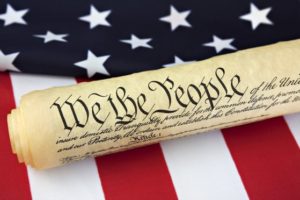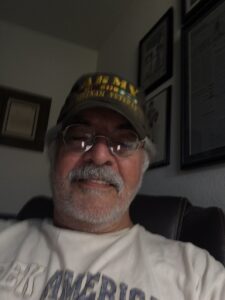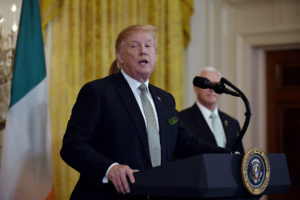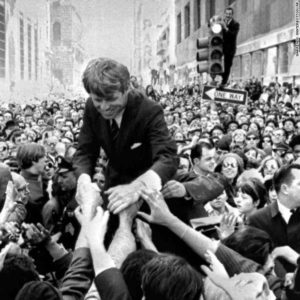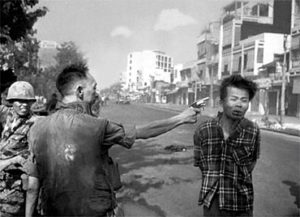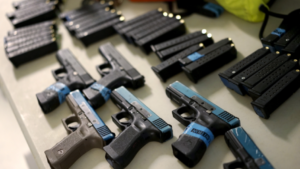
I understand people’s fascination with firearms. I get that many Americans get a form of “enjoyment” out of shooting them.
What I do not get — nor will I ever understand, more than likely — is the fascination with assault rifles, killing machines that shoot large amounts of ordnance in very little time.
I now will explain why I get the fascination part.
I’ll begin by boasting — just a little — that I have a certain proficiency with firearms. I discovered my rifle proficiency while serving in the U.S. Army. I completed my basic training at Fort Lewis, Wash., in 1968 while toting an M-14 semi-automatic rifle. It used a 20-round magazine full of 7.62-mm rounds and I earned a “sharpshooter” rating with the rifle.
I flew from Fort Lewis to Fort Eustis, Va., for my AIT (advanced individual training). Even though I trained as an OV-1 Mohawk aircraft mechanic, we were issued M-16 rifles, on which we had to qualify. The M-16 was much lighter than the M-14, but it, too, used a 20-round magazine, firing a much smaller caliber round: a .223, barely bigger than the .22-caliber bullet my rifle at home shot. The M-16 is a deadly weapon of war, however. I qualified well on that weapon, too.
I was issued an M-16 when I reported for duty in Vietnam in the spring of 1969 and, thank goodness, I never had to fire it in combat.
But my exposure to those weapons never brought discomfort to me. I felt quite comfortable firing them during training exercises.
Fast-forward to 2003. I was working as editorial page editor of the Amarillo Globe-News in Texas. I received an invitation to take part in the Amarillo Police Department Citizens Academy. Its aim is to acquaint civilians to myriad aspects of police work. It’s an educational tool that APD uses to give citizens — such as yours truly — a better understanding of the complexities associated with law enforcement.
One aspect of the academy was to spend some time at the firing range. We got to shoot a .38-caliber revolver — a six-shooter; a 9-mm Glock pistol; and an AR-15 rifle (yes, the weapon used in the Parkland, Fla., school massacre on Valentine’s Day).
I am not as familiar with handguns as I am with rifles. But I made a rather startling discovery about myself that day: I’m a pretty good shot with a handgun. I was able to shoot the six-gun well; I was able to handle the more powerful Glock with proficiency; and the AR-15 felt much like the M-16 I was issued in Vietnam.
I came away from the APD Citizens Academy shooting range understanding fully the fascination with shooting weapons at targets.
However, and this interesting, as well, as much “fun” as I had shooting those weapons at the APD range, I didn’t get bitten by the shooting “bug.” I haven’t fired a handgun since that day 15 years ago.
As we continue this national discussion about guns, though, I remain opposed to the idea of allowing the relatively easy purchase of weapons such as the AR-15 that can be used to kill lots of people in no time at all.
They, in effect, are weapons of war, where they and other such weaponry do what they are designed to do. On the streets — or in school classrooms, for crying out loud! — they have no place.
